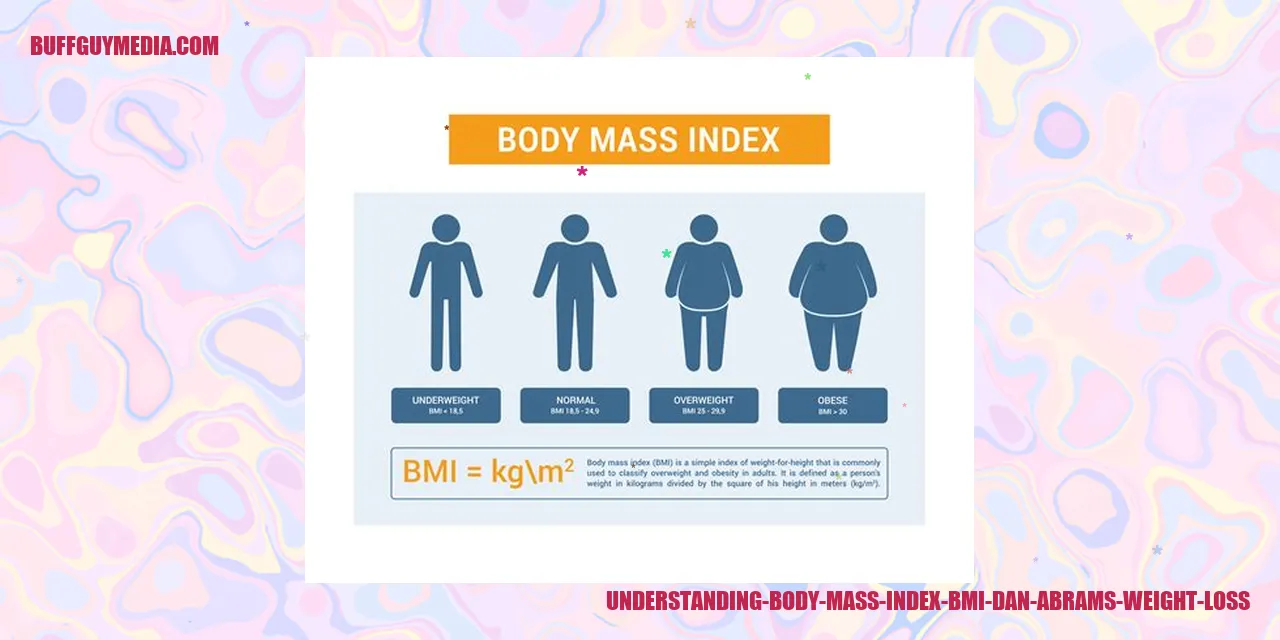Dan Abrams Weight Loss: Healthy Lifestyle Transformation and Inspiring Fitness Journey
The weight loss Journey of Dan Abrams
Dan Abrams’ Diet and Fitness Regimen
Dan Abrams, the well-known American television host and legal commentator, has embarked on an extraordinary weight loss journey, captivating the curiosity of many individuals seeking to uncover his path to success and transformation towards a healthier and more active lifestyle.
A key component of Dan Abrams’ weight loss journey lies in his unwavering dedication to maintaining a well-balanced diet and engaging in regular exercise. He adheres to a meticulously planned nutritional regime that emphasizes the consumption of foods rich in nutrients, portion control, and the avoidance of processed foods and sugary beverages. Abrams firmly believes in fueling his body with wholesome and nourishing foods like lean proteins, whole grains, fruits, and vegetables. Moreover, his diet incorporates healthy fats derived from sources such as avocados and nuts.
In tandem with his dietary practices, Abrams has wholeheartedly adopted an active lifestyle. He incorporates a diverse range of exercises into his routine, including cardiovascular workouts, strength training, and yoga. Regular physical activity not only assists in calorie burning but also enhances overall physical fitness and uplifts mood.
Dan Abrams’ Astonishing Before and After Transformation
Dan Abrams’ weight loss journey serves as an epitome of inspiration. His remarkable before and after photos provide undeniable evidence of a substantial change in his appearance and overall well-being. The relentless effort and unwavering commitment he has demonstrated in adopting a healthier lifestyle are clearly manifested through the extraordinary transformation he has undergone.
Prior to embarking on his weight loss journey, Dan Abrams grappled with weight management issues and he eventually reached a point where he recognized the need for change. Through sheer determination and discipline, he successfully shed excess weight and achieved a more sculpted and fit physique. His transformation serves as a testament to the remarkable accomplishments that can be achieved with resilience and unwavering devotion.
Valuable Tips and Advice for Successful Weight Loss
Dan Abrams’ weight loss journey offers invaluable insights and guidance for individuals aspiring to shed pounds and enhance their overall health. Below are some tips inspired by his triumphant success:
- Set achievable goals: Establish realistic weight loss goals to maintain motivation throughout your journey.
- Adopt a well-balanced diet: Prioritize the consumption of nutrient-dense foods while steering clear of processed and sugary options.
- Prioritize physical activity: Incorporate regular exercise into your routine, such as cardiovascular exercises, strength training, or yoga sessions.
- Seek support: Build a support system consisting of friends, family, or professionals to hold you accountable and keep motivation levels high.
- Maintain consistency: Consistency is the key to successful weight loss. Stick to your diet and exercise plan, making it a sustainable long-term lifestyle change.
[[READMORE]]
In conclusion, Dan Abrams’ weight loss journey stands as a magnificent demonstration of the transformative power that comes with unwavering commitment and the adoption of healthy habits. Through his disciplined diet and fitness regimen, he accomplished astounding results, both in terms of physical transformation and overall well-being. By incorporating his principles and following his valuable tips, individuals can confidently embark on their own successful weight loss journeys.
Also read:
Weight Gain after Cardiac Ablation: Causes, Effects, and Management
Costco Healthy Noodles Recipes: Delicious and Nutritious

The Advantages of Losing Weight
Enhanced Overall Wellness and Health
One of the most noteworthy merits of shedding excess weight is the improvement in overall wellness and health. Through the process of weight loss, you reduce the strain on your body, particularly your cardiovascular system. This, in turn, leads to lower blood pressure, decreased levels of cholesterol, and an enhanced state of cardiovascular health. Furthermore, weight loss can alleviate joint discomfort, promote better sleep quality, and improve mobility. By enjoying improved overall health, individuals often experience a greater sense of vitality and a higher level of general well-being.
Augmented Energy Levels and Endurance
A direct outcome of weight loss is increased energy levels and endurance. As you shed excess fat, your body becomes more proficient at utilizing energy, resulting in improved physical performance. Additionally, weight loss has been shown to enhance sleep quality, which, in turn, leads to increased energy levels during the day. With increased endurance, individuals can partake in physical activities for longer periods without feeling exhausted, ultimately leading to a more vigorous and fulfilling lifestyle.
Diminished Risk of Chronic Conditions
Another compelling benefit of losing weight is the reduced risk of chronic conditions. Carrying excess weight has been linked to an increased likelihood of developing conditions such as diabetes, heart disease, stroke, and certain types of cancer. By engaging in weight loss and maintaining a healthy body weight, individuals can significantly lower the risk of developing these chronic conditions. Weight loss also contributes to improving insulin sensitivity, reducing inflammation, and lowering the chances of experiencing complications related to obesity.
Increased Self-Assurance and Positive Body Image
Weight loss can deeply impact self-assurance and body image in a positive way. Accomplishing weight loss goals and witnessing tangible results can heighten self-esteem and improve perception of body image. When individuals feel confident about their bodies, it positively influences their mental and emotional well-being. Enhanced self-assurance can also lead to a more active social life, improved relationships, and a higher propensity to engage in physical activities that may have been previously avoided.

The Significance of a Well-Balanced Diet for Effective Weight Loss
The Importance of Nutritional Balance
When it comes to shedding unwanted pounds, simply decreasing calorie intake is not enough. A well-balanced nutrition plan plays a vital role in supporting overall wellbeing and helping you achieve successful and sustainable weight loss. By incorporating a diverse range of essential nutrients into your eating regimen, you can optimize bodily functions and enhance the body’s capacity to burn excess fat.
The Role of Fruits and Vegetables in a Healthy Diet
Fruits and vegetables should form the foundation of any effective weight loss diet plan. Bursting with vitamins, minerals, and dietary fiber, these natural foods not only provide vital nutrients but also promote satiety. Opt for a vibrant assortment of fruits and vegetables to ensure you receive a wide array of nutrients that can bolster your weight loss journey.
The Impact of Protein on Weight Management
Protein is a vital macronutrient that plays a crucial role in effective weight loss. Its high thermic effect means that the body expends more calories during the digestion and metabolization of protein-rich foods. Additionally, protein helps in preserving lean muscle mass, which is essential for maintaining a healthy metabolism. Include lean protein sources like chicken, fish, tofu, or legumes in your meals to support your weight loss efforts.
Smart Strategies for Snacking During Weight Management
Smart snacking choices can help you stay on track with your weight loss goals, preventing potential setbacks. Instead of derailing your progress, opt for nutritious snacks like Greek yogurt, mixed nuts, fresh fruit, or vegetable sticks with hummus. These snacks not only provide essential nutrients but also keep you feeling satisfied between meals, making them a valuable addition to your weight management routine.
Effective Exercises to Shed Those Extra Pounds

Cardiovascular Workouts for Calorie Incineration
When it comes to weight loss, cardiovascular exercises play a pivotal role in torching calories. Engage in activities like running, cycling, swimming, or even dancing to get your heart pumping and your metabolism firing up. These exercises not only elevate your heart rate but also facilitate the elimination of stubborn fat.
Strength Training for Sculpting Lean Muscle
Don’t dismiss the significance of strength training in your weight loss journey. By incorporating exercises that focus on building lean muscle mass, you can kick-start your resting metabolic rate. Embrace weightlifting, bodyweight exercises, or resistance training with bands and weights to achieve your desired results.
High-Intensity Interval Training for Efficient Workouts
If you’re looking for a workout that delivers maximum calorie burn in minimal time, high-intensity interval training (HIIT) is the answer. HIIT involves alternating between intense exercises and short recovery periods. This dynamic workout not only accelerates fat burning but also enhances cardiovascular fitness and revs up your metabolism.
Incorporating Yoga or Pilates for Enhanced Flexibility and Relaxation
Incorporating exercises that improve flexibility and induce relaxation is equally vital alongside cardiovascular and strength training. Consider including yoga or Pilates in your fitness routine, as they strive to enhance body flexibility, reduce stress levels, and promote overall well-being.
By incorporating these effective exercises into your fitness regimen, you can achieve remarkable weight loss and enjoy improved physical health. Prior to commencing any new exercise program, especially if you have underlying health conditions, it is recommended to consult with a fitness professional.
Successfully Maintaining Weight Loss Results

Establishing a Sustainable Lifestyle
Achieving long-lasting weight loss results requires adopting a sustainable lifestyle. This means making lasting changes to your daily habits and routines instead of relying on short-term solutions. Rather than resorting to crash diets or extreme workout routines, focus on implementing modifications that you can maintain for the foreseeable future.
Begin by identifying the detrimental patterns that contributed to weight gain initially. These may include excessive snacking, emotional eating, or leading a sedentary lifestyle. Once identified, strive to replace these habits with healthier alternatives. For instance, swap sugary snacks for nutritious options like fresh fruits or nuts. Incorporate regular exercise into your routine and find physical activities that genuinely ignite your interest, making it easier to stay motivated.
Setting Attainable Goals for Long-Term Success
Realistic goal-setting is pivotal for maintaining weight loss results over the long haul. While it’s natural to desire rapid weight loss, aiming for unrealistic goals can lead to frustration and demoralization. Instead, concentrate on setting achievable targets that are sustainable in the long run.
Break down your overall weight loss goal into smaller milestones. As you achieve each milestone, take the time to celebrate, as doing so will help maintain your motivation. Furthermore, bear in mind that weight loss encompasses more than just a number on the scale. Consider additional measures of progress, such as increased energy levels, improved stamina, or enhanced ability to comfortably fit into your desired clothing.
Monitoring and Modifying your Dietary Habits
Vigilantly monitoring and adjusting your dietary habits is crucial for maintaining weight loss results. This entails being conscious of what and how much you consume, as well as making necessary alterations when needed.
Keep a food diary to track your daily intake and identify any unhealthy patterns. This will enable you to become more aware of your eating habits and make the necessary adjustments. Prioritize incorporating whole foods like fruits, vegetables, lean proteins, and whole grains into your diet while limiting processed and high-sugar foods.
If you notice a plateau in your weight loss journey, consider tweaking your calorie intake or the distribution of macronutrients to reignite your progress. Remember to consult a healthcare professional or a registered dietitian before making significant changes to your diet.
Remaining Active and Discovering Enjoyable Physical Activities
Maintaining an active lifestyle is crucial for preserving weight loss results. Find physical activities that you genuinely enjoy and make them a regular part of your routine. Whether it involves going for a walk, dancing, swimming, or engaging in a sport, participating in activities you love will help you stay motivated and committed to an active lifestyle.
Embrace variety in your exercise regimen to ward off monotony and keep things interesting. Experiment with new workout routines, join fitness classes, or venture into outdoor activities. Participating in activities with friends or becoming a member of local sports clubs can also enhance the enjoyment and social aspect of exercising.
Remember, maintaining weight loss is not solely linked to time spent at the gym. By incorporating physical activity into your everyday life, such as opting for stairs instead of elevators, walking or biking short distances instead of driving, and taking active breaks during prolonged periods of sitting, you can effectively promote weight management.
In conclusion, successfully maintaining weight loss results necessitates adopting sustainable lifestyle changes, setting attainable goals, vigilantly monitoring and modifying dietary habits, and remaining active through enjoyable physical activities. By implementing these practices, you can ensure long-term success in your weight management journey.

Demystifying Popular Misconceptions About Losing Weight
Targeted Weight Loss: Debunking the Spot Reduction Myth
One prevailing misconception about weight loss is the notion of spot reduction. Many individuals mistakenly believe that by solely exercising a particular body part, they can effectively eliminate fat from that specific area. However, spot reduction is a fallacy. When we engage in physical activities, our body burns fat from various regions, not just the targeted one. To achieve weight loss in specific areas, it is vital to focus on overall weight reduction through a combination of cardiovascular exercises, strength training, and a well-rounded diet.
The Truth about Crash Diets and Rapid Results
Crash diets often promise rapid weight loss within a short timeframe. These diets typically involve severe calorie restriction, resulting in initial weight reduction. However, this weight loss predominantly consists of water weight and muscle mass, rather than fat. Moreover, crash diets are generally unhealthy and unsustainable in the long run. They can disrupt our metabolism, lead to nutrient deficiencies, and trigger a cycle of yo-yo dieting. Opting for a gradual and balanced approach to weight loss, focusing on consuming a variety of nutritious foods while maintaining a realistic calorie deficit, is advisable.
Overcoming the Myths of Completely Eliminating Food Groups
Another common misconception is the belief that eliminating specific food groups, such as carbohydrates or fats, is necessary for successful weight loss. While reducing processed and unhealthy foods can aid weight reduction, entirely cutting out entire food groups can have adverse effects. Our bodies require a balanced intake of carbohydrates, proteins, fats, vitamins, and minerals for optimal functioning. Restricting or eliminating a food group can lead to nutrient deficiencies and imbalances. The key to achieving sustainable weight loss lies in moderation, portion control, and incorporating a variety of nutrient-dense foods into our diets.
The Illusion of Supplements and Pills as Miracle Weight Loss Solutions
The weight loss industry is saturated with supplements and pills claiming to provide quick and effortless weight loss. However, the effectiveness and safety of many of these products remain questionable. While some supplements may offer modest benefits when combined with a healthy diet and regular exercise, there is no magic pill for weight loss. It is essential to approach extravagant promises made by these products with caution and skepticism. Instead, prioritizing lifestyle modifications, such as engaging in regular physical activity and following a well-balanced diet, serves as the foundation for sustainable weight loss.

Effective Strategies for Maintaining a Healthy Weight
Emphasizing Restful Sleep and Managing Stress Levels
Promoting quality sleep and implementing effective stress management techniques are vital for maintaining a healthy weight. Insufficient sleep can disrupt hormonal balance, leading to increased cravings and a tendency to consume unhealthy foods. Moreover, stress-induced emotional eating often involves consuming calorie-dense and sugary snacks. Prioritizing sleep and utilizing stress management methods such as meditation, yoga, or regular exercise can help prevent weight gain associated with these factors.
Adequate Hydration for Appetite Control and Overall Well-being
Hydration plays a pivotal role in weight management. Besides keeping the body properly hydrated, consuming adequate amounts of water can assist in controlling the appetite. Often, feelings of hunger can actually be a sign of thirst, resulting in unnecessary calorie consumption. By maintaining proper hydration levels throughout the day, individuals can reduce the tendency to overeat. Additionally, drinking water before meals can create a sense of fullness, leading to smaller portion sizes and an overall reduction in calorie intake.
Mindful Eating and the Importance of Portion Control
Mindful eating involves being fully present and engaged during meal times, focusing on the taste, aroma, and texture of the food. This practice promotes slower eating and encourages individuals to savor each bite, preventing mindless overeating and increasing satisfaction from smaller portion sizes. Moreover, incorporating portion control techniques, such as using smaller plates and containers, can further aid in weight management by preventing excessive calorie consumption.
Building a Support System with Friends, Family, or Support Groups
Weight management can be challenging, and having a support system is crucial for long-term success. Engaging with friends, family, or joining a support group can provide encouragement, accountability, and valuable insights for maintaining healthy habits. Sharing experiences, overcoming challenges, and setting goals with others who are also striving for weight management can foster a motivating and supportive environment.

Understanding Body Mass Index (BMI)
What Does BMI Mean and How is it Computed?
Body Mass Index (BMI) is a numerical gauge utilized to evaluate the correlation between weight and height. It acts as an indicator to determine if an individual has a proper weight for their height. BMI is calculated by dividing the person’s weight (in kilograms) by the square of their height (in meters). The formula for calculating BMI is:
BMI = weight (kg) / (height (m))^2
Decoding BMI Outcomes and Categories
After computing the BMI, it falls into various categories that signify whether one is underweight, normal weight, overweight, or obese. The generally accepted ranges are as follows:
- Underweight: BMI less than 18.5
- Normal weight: BMI between 18.5 and 24.9
- Overweight: BMI between 25 and 29.9
- Obese: BMI equal to or greater than 30
Drawbacks of BMI as a Measure of Overall Health
Although BMI is a straightforward and rapid method to evaluate weight status, it has limitations. It fails to consider factors such as muscle mass, bone density, and the distribution of fat. This means that individuals with higher muscle mass may have a higher BMI, even if they possess a healthy body fat percentage. Additionally, BMI fails to differentiate between fat and muscle weight, leading to inaccurate classifications.
Alternative Techniques to Assess Body Composition
Due to the limitations associated with BMI, other methodologies can be employed to evaluate body composition more accurately. These alternatives encompass:
- Waist circumference: Measuring the waist size can offer insights into fat distribution, which is pertinent to overall health.
- Body fat percentage: This method utilizes specialized scales or devices to estimate the proportion of fat in the body.
- Skinfold thickness: It involves utilizing calipers to measure skin flap thickness at various points on the body, which can then be used to estimate body fat.
Ultimately, while BMI serves as a widely utilized measure of weight status, it possesses limitations, and alternative techniques ought to be considered for a comprehensive evaluation of body composition and overall health.
Frequently Asked Queries on Shedding Pounds

How much time does it take to observe noteworthy progress in weight reduction?
The duration required to witness significant weight loss outcomes varies from person to person and relies on several factors. These factors encompass your existing weight, metabolism, genetic composition, dietary patterns, and level of physical activity. Generally, a steady and healthy pace of losing weight is deemed to be around 1 to 2 pounds per week. Consequently, adhering to a consistent and wholesome approach can yield noticeable changes within a few months. However, it’s crucial to remember that weight loss is a gradual process, necessitating sustainable transformations in lifestyle for long-term accomplishments.
Can weight loss be achieved without engaging in physical exercise?
Indeed, it’s feasible to shed pounds without partaking in workouts, notwithstanding the fact that exercise profoundly augments the weight loss journey. The fundamental aspect of losing weight revolves around creating a calorie deficit, i.e., consuming fewer calories than expended. Even though work out assists in burning calories, emphasis should be laid upon regulating your diet. By adhering to a well-balanced and nutritious eating plan while exercising portion control, it’s plausible to effectively shed pounds sans exercising. Nevertheless, integrating physical activity into your routine proffers numerous health benefits and contributes to long-term weight maintenance.
What are the key hurdles encountered in sustaining weight loss?
Sustaining weight loss can be an arduous task for many individuals. One common obstacle is the propensity to regain the weight after successfully shedding it. Frequently, this is attributed to reverting back to previous eating habits and veering away from a balanced and sustainable diet regimen. Additionally, emotional and psychological elements play a role in weight maintenance. Stress, monotony, or emotional eating frequently lead to weight regain. Other challenges involve navigating social gatherings, societal pressure, and a dearth of support. Overcoming these difficulties necessitates a steadfast commitment to enduring lifestyle changes, soliciting support from loved ones, and adopting coping mechanisms for stress and emotional triggers.
Do weight loss supplements guarantee safety and effectiveness?
The safety and efficacy of weight loss supplements fluctuate depending on the specific product. While certain supplements may assert their assistance in weight loss, it’s pivotal to exercise caution and consult a healthcare professional before incorporating them. Several weight loss supplements lack FDA approval and may exhibit limited scientific evidence substantiating their claims. Moreover, some supplements can trigger adverse side effects or interact unfavorably with certain medications. To attain sustainable weight loss, it is recommended to focus on a well-rounded diet, regular physical exercise, and healthy lifestyle practices rather than relying solely on supplements.









